Crooked Teeth As A Fashion Statement
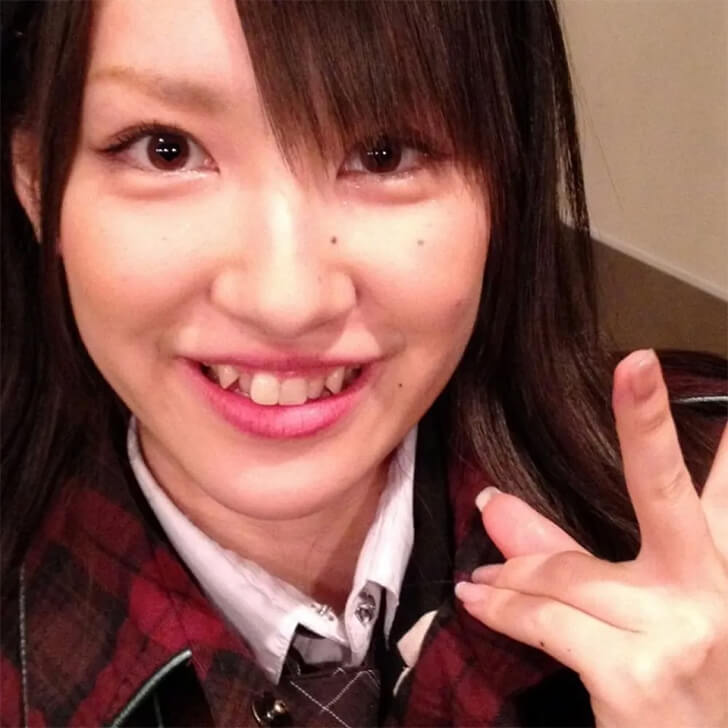
For many people, having their teeth aligned is a priority. Apparently, many people worldwide strive to keep their own set in perfect alignment. On the other hand, Japan is busy rejoicing over its crooked teeth, known as 'yaeba.' This may seem funny, but to them, it's a whole vibe.
There has been a bizarre rising trend where people feel proud of their off-kilter dentures. Ideally, 'yaeba' translates to a double tooth with some canine teeth capped, which leads to all the crookedness. Surprisingly, this beauty trend is expensive, but to their luck, it's reversible.
It Doesn't Have to be Round Anymore
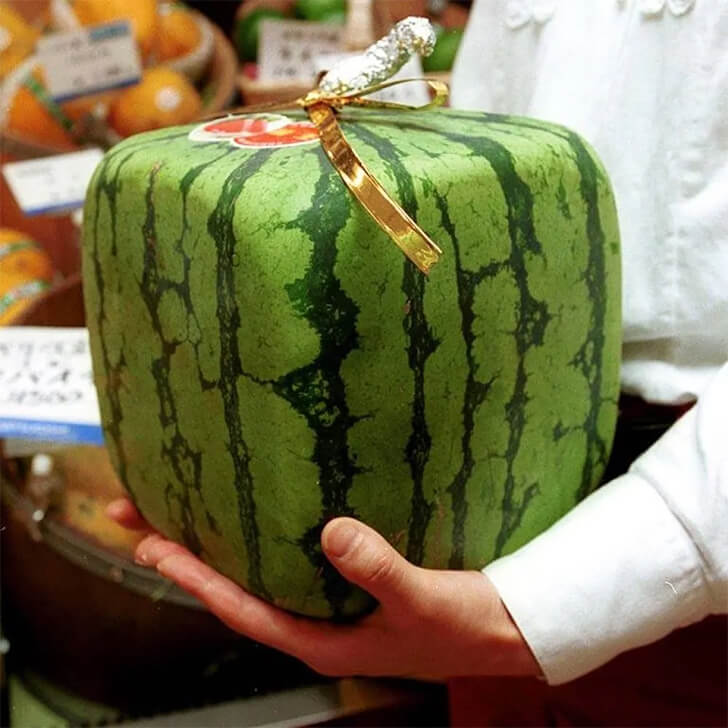
Watermelon is a popular summer fruit that is common in many countries. During this fruit season in Japan, people play a game called 'suikawari,' which is like a similar version of the piñata. Apparently, some funny-looking square watermelons seem more interesting than the round ones.
The melons are uniquely designed to fit fridges, not to mention they are easy to slice too. Of course, they are more decorative and fancier than the regular watermelons. A piece of this modified fruit can cost up to $160 and comes in shapes like triangles and hearts.
Take a Dip in Soup
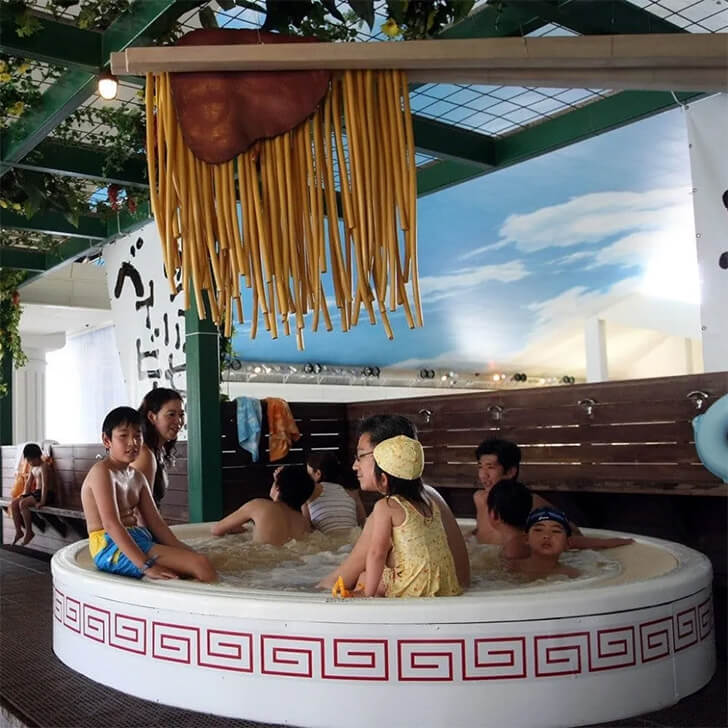
Japan has a centuries-old tradition of traditional bathhouses. Other countries might have the same practice. However, Yunessun Spa Resort in Hakone has given its spa tradition a different but creative twist. Have you ever imagined bathing in a pool of coffee, wine, ramen broth, or pork soup? The question is, why would you do that?
This is exactly what Ichiro Furuya, the owner, gives his guests. He says people have lately been concerned with having beautiful skin, and the pork-based broth has collagen that raises skin elasticity. On top of this, you also get to enjoy the fantastic view of the illuminated Hakone mountains.
Systems Trust the People
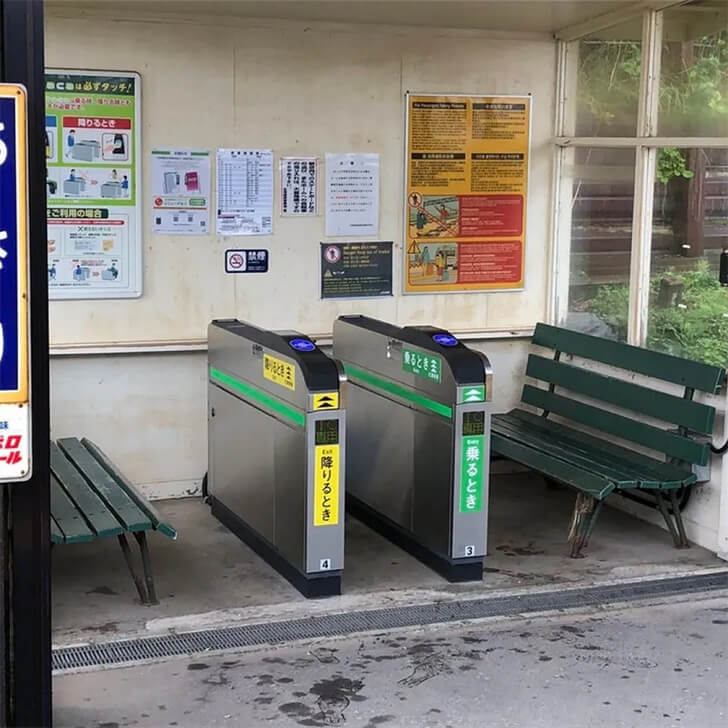
Japan is well-known for its innovation and operational systems. Some systems mutually trust and respect people in such a way that they can charge you only when you are honest. After passing through the system at the gate, no one can ask you for any documentation or confirmation.
These kinds of automation, which lets you pay for your service without the supervision of others, showcase how Japanese people value their dignity. Since the locals are honest, there is heavy use of automation at cashier points. People rely on these machines as they make service easier and more convenient.
Cleaning Culture For Children
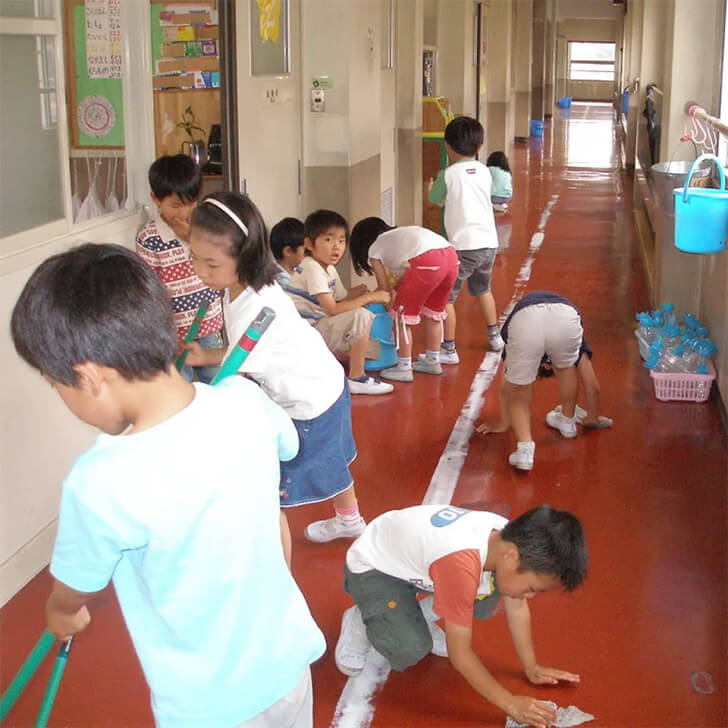
Cleaning can't kill you! This is one saying that Japanese parents, teachers, and children take to heart. Many people find cleaning as such a challenge, so training the youth before they get to a certain age might be a lot of work.
Ideally, in Japan, cleaning is a tradition for kids. They have a schedule for cleaning their classrooms, a learning process that's part of their school curriculum. Even the young first graders have their own day and time to serve their classmates' lunch. These youngsters also learn how to clean toilets and organize their classrooms.
Eat, Live, and Breathe KFC
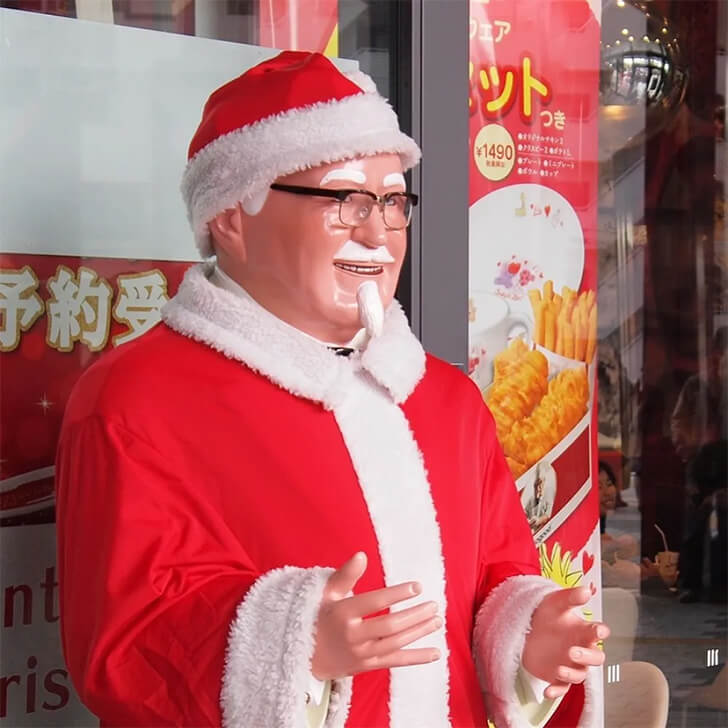
Other countries consider fast food optional, only to be taken on the weekends, holidays, or festive seasons. One of the essential parts of Japanese culture is spending their day munching on KFC's fried chicken, mashed potatoes, or fries. This tradition started in the early '70s when the first KFC owner overheard people lamenting over a lack of turkeys for Christmas.
Typically, many people in Japan live and breathe KFC. To them, it is never a special occasion but rather a lifestyle. Statistics show that the country ranks among the top three KFC and fast-food eaters worldwide.
Cats Running Café

Over the past few decades, animal cafés have become very popular. Cats and dogs are all over these establishments, bringing their own unconventional friendliness. It seems odd, but it's fun playing with a lovely pet while waiting for your order.
This is a brilliant idea that has generated a lot of buzz in recent years. In fact, some animal cafés in Japan have adorable cats that are an excellent attraction for clients. The beauty of this experience is that you get to play with a kitty and feed it special cat ice cream. Secure a ticket to Japan and experience such wonders.
The Extreme Noise Control Option
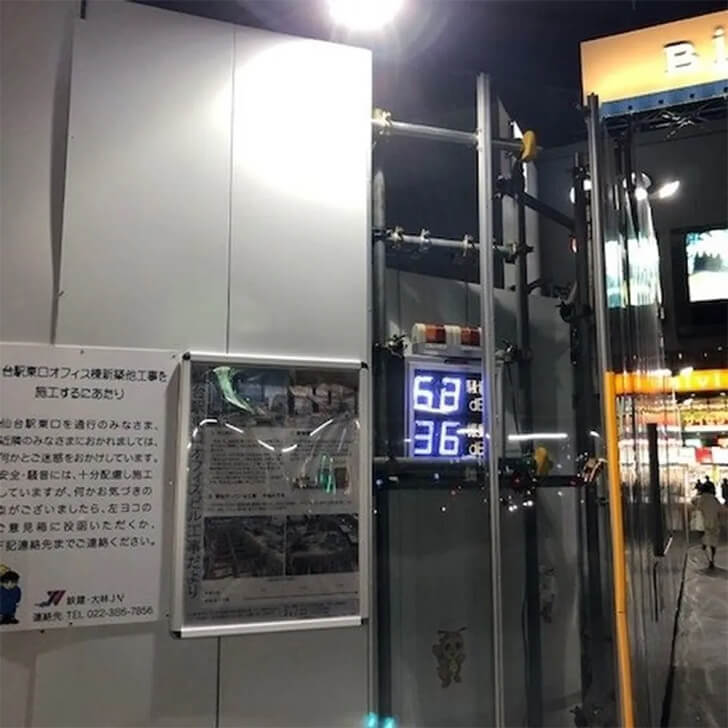
One of the most frustrating things you can have around your home is extreme noise. Actually, this aspect is classified as pollution. Imagine living next to a construction site or near boisterous activities like metal clanging, drilling, or hammering. You'll find that most days of your life get disrupted—even sleeping becomes a problem!
Japan seems to have absolutely no time for noise disturbances. The country has developed a noise control system that helps with extreme noise control. The systems are installed on the building site in such a way that no one can tell there's a site nearby.
Come and See a Cute Little Panda Getting Stuck!
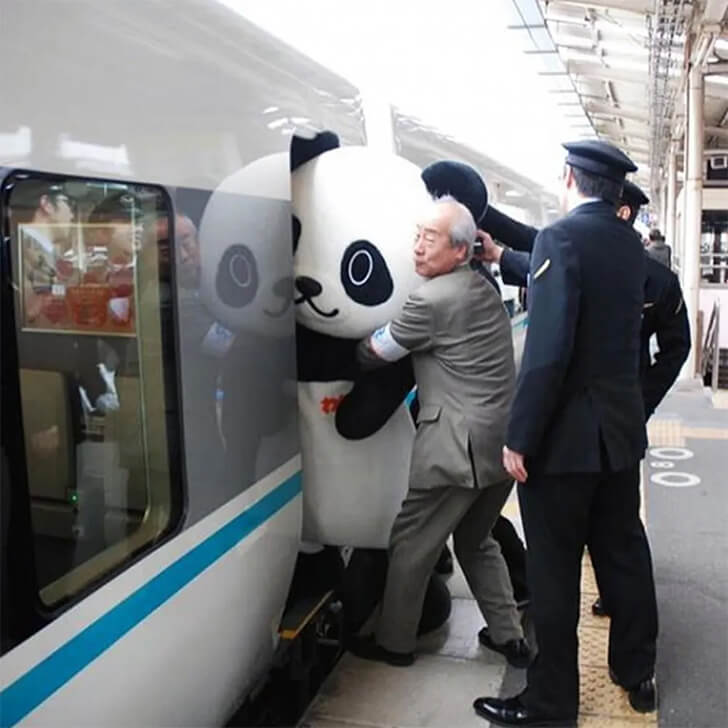
Japan is stuffed with mascots and animals. There is even a particular train with a popular Panda cartoon theme. It is usually big on bullet trains because they've also hired a cute little mascot to entertain and brighten up the train passengers throughout the day.
However, it becomes challenging for the mascot to move around in the costume. Sometimes you may find it stuck as it attempts to pass through the gates like this poor panda. Whenever that happens on the train, it leaves the passengers cracking up. Isn't it amusing to be in such a place?
Lovely Rice Paddy Art
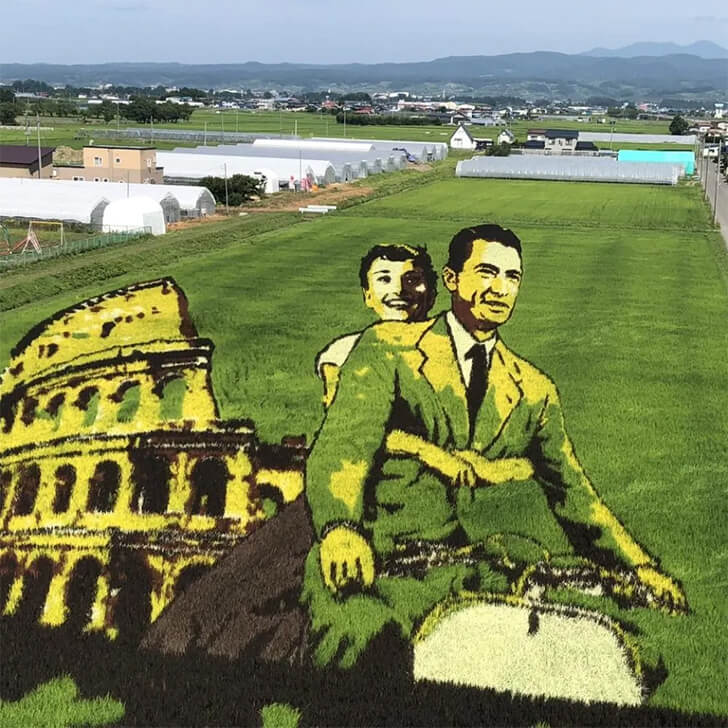
When you think of brilliant brains and creativity, it can lead you to the Japanese people. Just look at this uniquely designed rice paddy! People use their visual senses to know the type of rice to plant in a specific area. By the end of it all, the plants grow to form a large piece of art.
In Japan, this brilliant practice is called 'Inakadate,' which started in 1993 in Aomori. This artform has so far spread to over 100 locations in the country. The beauty of this design is that a farmer can show their love for various characters, like animals, powerful words, and many more.
The Versatility of Randoseru Backpacks

It is rare to find an elementary student without a 'randoseru' backpack in Japan. Typically, every media watcher knows about these durable bags. They are generally made of leather, with the bags themselves being durable enough to serve for around six years.
Usually, many Japanese have a standard mode of identification, as boys pick blue backpacks while girls pick pink. However, there have been several variations that involve color varieties and more fashionable items. Thanks to their versatility and the bag's popularity, many people have come to own this 'randoseru' bag worldwide.
Organization Is Key
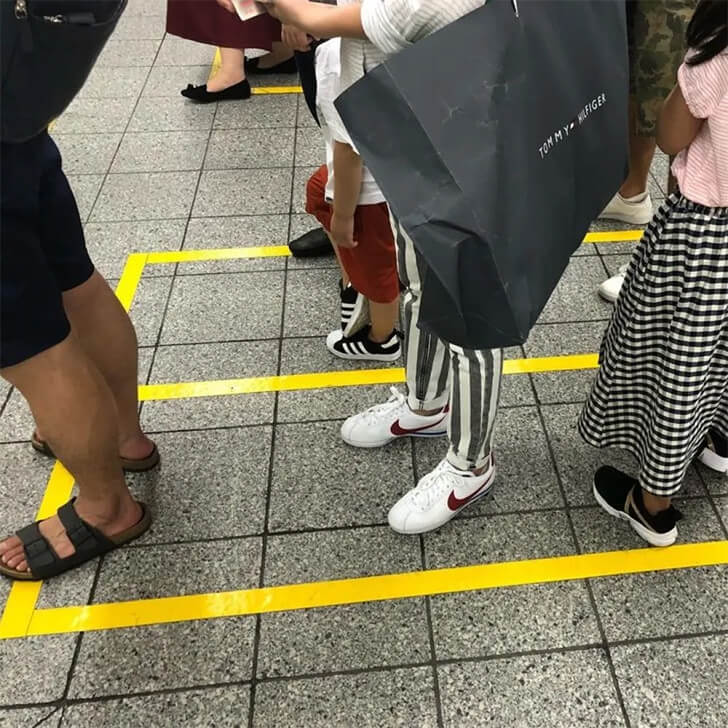
Typically, when you Google the things you can do in Japan, you find out everything has its own guidelines. The nation is run by pretty strict guidelines, which include the queuing system. Other nationalities lack organization in public and personal spaces, while the Japanese care about their calmness and time.
The beauty of queuing is that you can't find unnecessary pushing when waiting for a train's arrival. Usually, passengers stand on the lines indicated by the position of the door. Interestingly, everyone has to follow the trend, even if they are alone. People are also given precedence over urgency, but they also care about others.
A Basket for Your Bag
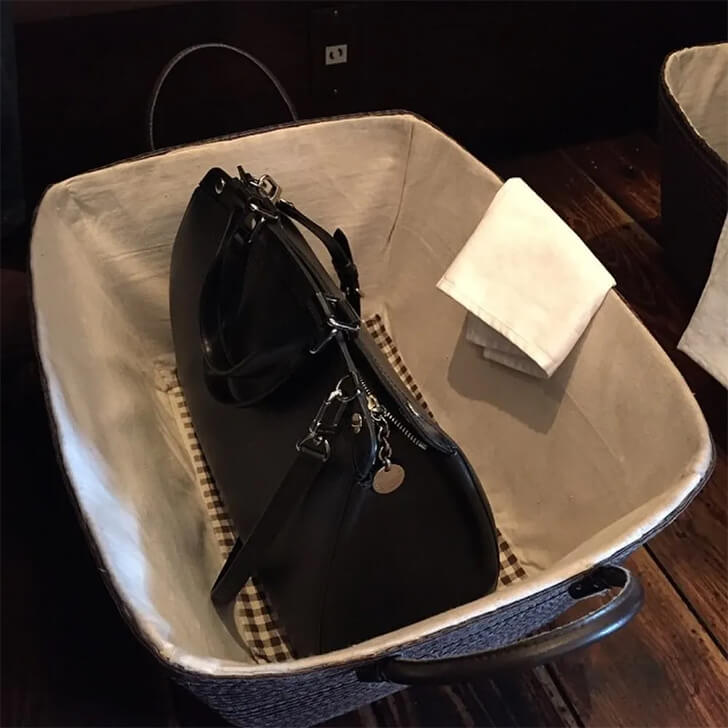
Have you ever found yourself in a situation where you are in a restaurant, and there is no space to place your bag, so the only option is the floor? If so, this is for you. The Japanese don't worry about putting their bags down because they have big baskets to store them.
This issue may not be a problem in some nations, but in a country like Japan, where hygiene is a top priority, you need to be prepared. Some Japanese next-level cafés also offer baskets for clients to put their bags in.
The Green Line for the Little Ones
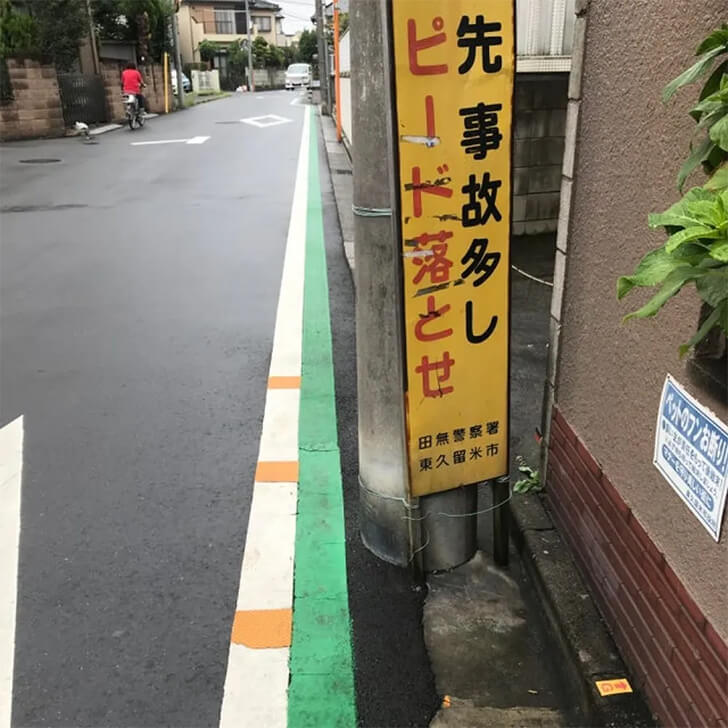
Safety should always come first; in Japan, it is completely critical due to the country's concern for its young ones. In particular, this applies to kids who walk to school every day and have a riskier life on the road.
Usually, some children get distracted or start playing in the middle of the road, where accidents are likely to happen at any time. It is the main reason Japan has its roads marked with a green line representing the student zone. Kids should walk along that line until they get to their destination safely.
No Worries About Thieves
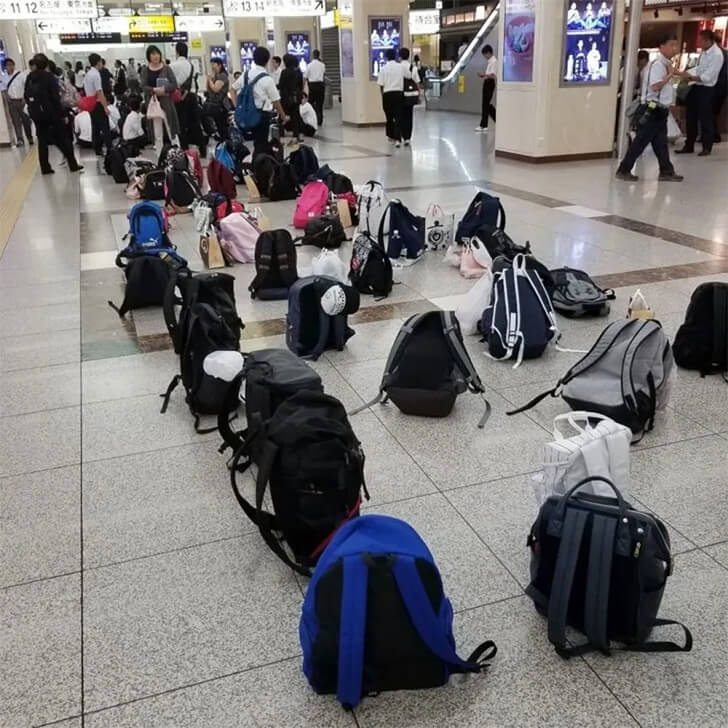
Japan is one of the best countries in the world to be in. In fact, some indexes suggest that it is among the five safest countries globally. Moreover, since it is secure, you can be sure that you won't get mugged or robbed anywhere.
For instance, when kids go on tours, they leave their backpacks freely in the waiting room. In the train stations, it is no different. People leave their stuff and find it in the same place. There are not many lands where you can do the same and find your stuff where you left it.
Beautiful and Cozy Capsule Hotels
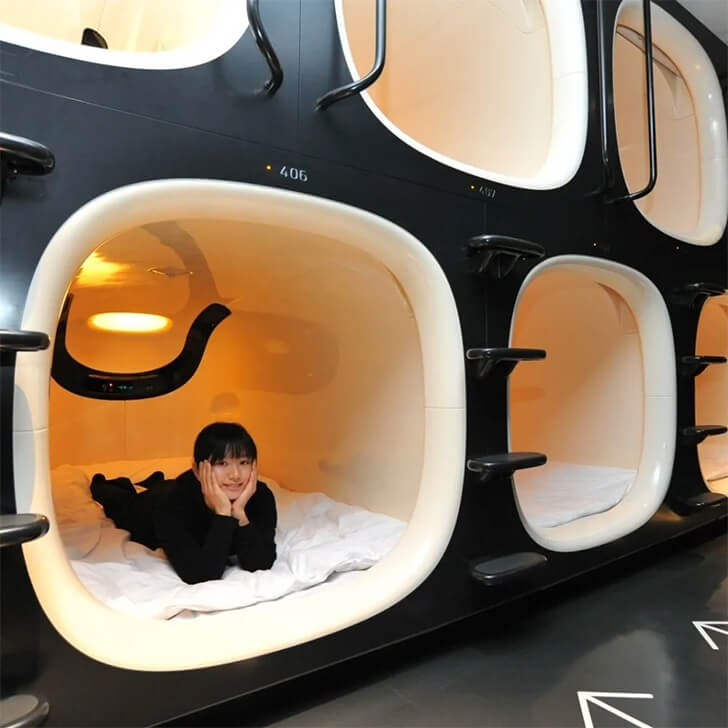
Choose the cozy capsule hotel if you want to have a unique experience in an outstanding lodge in Japan. Since 1970, when architect Kisho Kurokawa first designed it, this lodge has been popular and in demand.
The capsule hotel has since skyrocketed and has widely spread in Japan, particularly near airports. It has also become a great tourist attraction, as people visit the hotels to have the experience of a lifetime. Furthermore, the rooms are affordable, cozy, and make you feel as if you are in a fiction novel of some sort.
Handy Little Handle for Huge
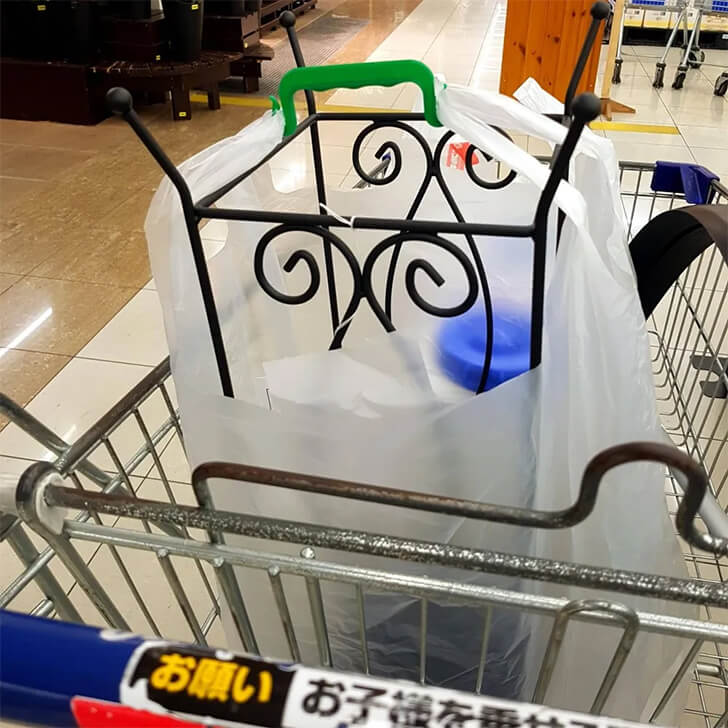
Have you ever been out casually walking when you see a beautiful item you would like to buy but can't fit in your bag? If so, then Japan already has a solution for this. The country has some "handles for huge items," meaning you can shop for the bulky items you want.
Alternatively, you may be out shopping when you come across an item you've always wanted but can't fit in your current trolley. You can use Japan's handy little handle that's perfect for large items. How we wish this also existed everywhere else.
A Plethora of Vending Machines
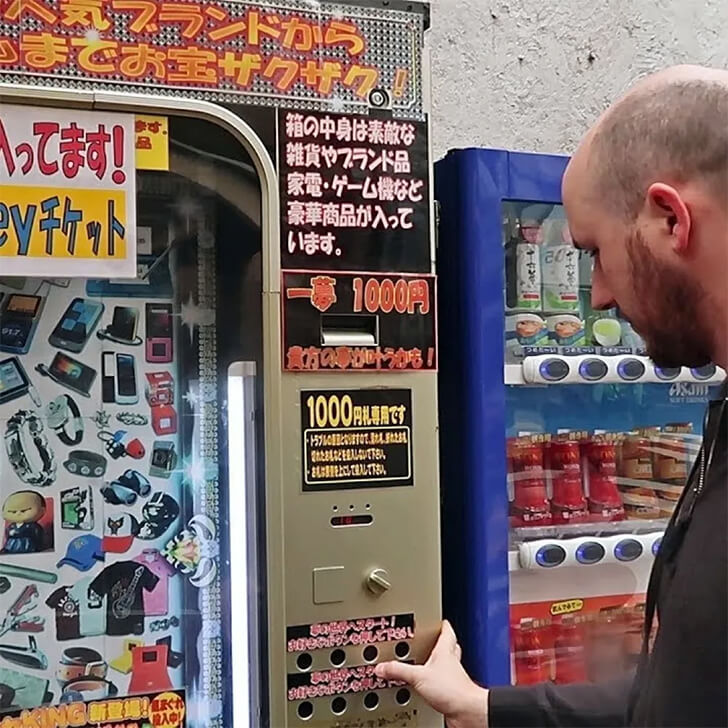
Japan stands out as one of the most advanced countries in the world, with over five million vending machines. In fact, the country has the highest density of dispensers that can approximately serve at least 23 people for each one nationwide.
One of the main reasons for this massive number of dispensers is to serve a larger population within a short time effectively. Furthermore, Japan has an enormous population of over 125.8 million people, making it challenging to serve everyone. The vending machines are super convenient, and you can buy anything you need at any time.
Burnt-Like Toast

Interestingly, Japanese people purposely make burnt toast for their breakfast. This is weird because a piece of burnt toast is enough to ruin other people's entire morning. Funny enough, although it seems burnt when you look at the loaf, it's not.
The ingredients used make it appear like burnt toast. Japanese bread uses a key component, bamboo coal, to give this loaf of bread its classic dark color. Apparently, the toast itself is super soft and fresh. Don't shy away from trying out this unique delicacy when you visit Japan.
Nap Time Policy for Employees and Employers

Does your company policy allow you to take a nap time break regularly? In Japan, employers and employees take naps in the afternoon hours. This might be considered unusual in some countries, but it is regarded as a positive light sleep at work in the' Land of the Rising Sun.'
Employers don't find it as a sign of laziness but an indication that employees are working hard, so they get exhausted and doze off. Most companies allow their employees to take at least a 30-minute snooze between 1 p.m. and 4 p.m. This unique practice is called 'inemuri.'
A Ready 7-Eleven Office
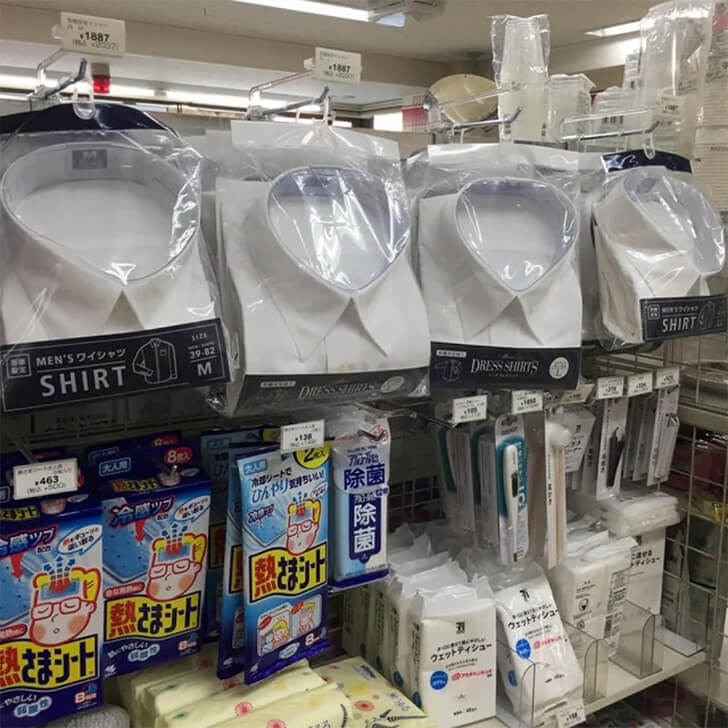
Convenience is Japan's other name, and 7-Eleven is one of the undisputed one-stop shops for your official needs. These shops offer a variety of items, including clothing and shavers. There's also food and medicine available.
The level of convenience is unmatched compared to other nations worldwide. Think of it this way, if your shirt ever gets stained, you can go to a 7-Eleven shop and get a new dress shirt and continue with your activities. Unlike other countries where you rarely find a shop that has all you need, Japan makes it easy for everyone.
Unusual Game Shows
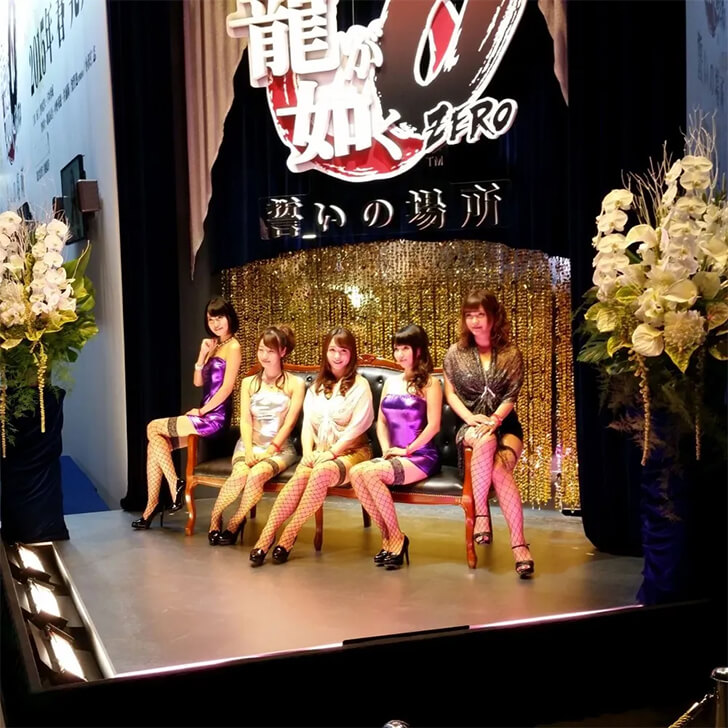
Japanese gaming culture is on a different level. Some game shows are rather weird and wild to watch, to the extent that they can't get broadcast permits in some countries. Most of these shows are intense and keep the contestants in humiliating situations.
For instance, there's a game show that allows contestants to determine specific objects by taking a bite into them. This may seem extremely disgusting because some items are explicit and made of gory material. The beauty of these programs is that they have embraced the weird side, but they are interesting and fun to watch.
Salad in a Can
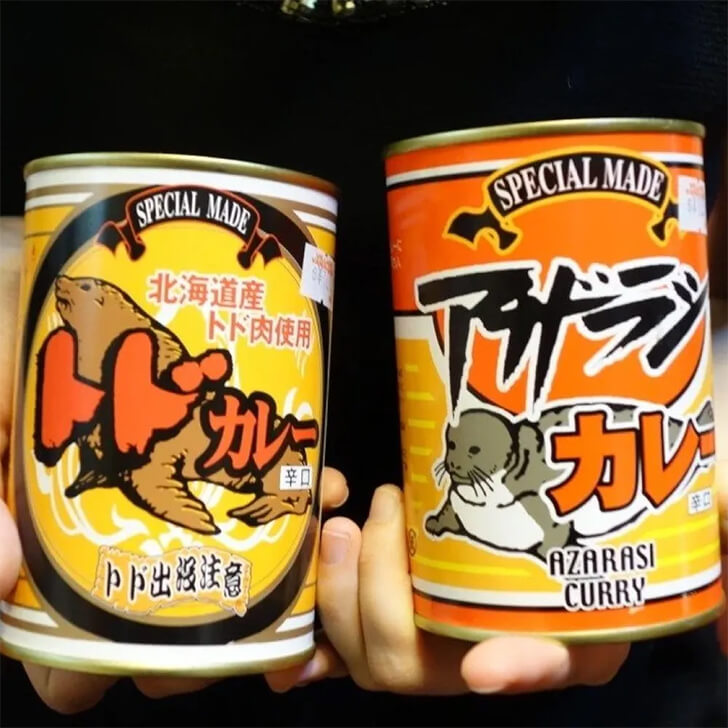
Usually, Japanese cuisines are crowned as some of the world's favorite foods thanks to all the intriguing tastes and intricate cooking and eating styles they offer. The flavors are blissful to the mouth, and people can't resist their delicacies.
Among the places serving tasty and good-looking meals is a national palate chain restaurant called Mr. Kanso that serves only canned food. People can easily choose from the over 300 dishes across all the locations nationwide. They offer different cuisines, such as Korean sea lion curry, salad in a tin, and silkworm chrysalis.
A Bike for the Family
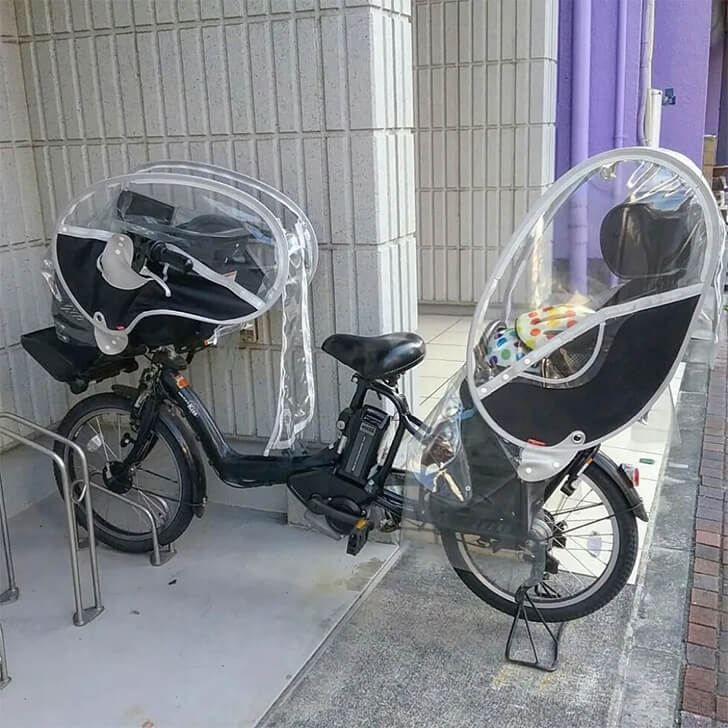
Another interesting aspect of Japanese culture is their family bike. This ingenious contraption has become an essential mode of transportation for those that have young kids because some bikes can carry the parents and two kids. If, for instance, a family doesn't have a car and needs to travel somewhere, they can use the family bike.
This bicycle is designed with a bond-like shelter on the steering wheel and the backseat. The younger child is placed in the steering wheel area while the other child is in the backseat. This experience is fun even when you're just riding around your neighborhood.
Don't Pick It Up; Simply Leave It

You've probably realized by now how safe Japan is, from leaving bags in the waiting area to leaving items at the train station, and now, placing items wherever you want. The beauty of living in this country is that you have a share in the trust of your fellow citizens.
Well, when you're tired, you're likely to drop some of your stuff without knowing it. You can also doze off before collecting the items. Believe it or not, no one will touch your things even if they are set on the ground. In other places, these items would be snatched in a matter of seconds.
Baby Crying Competition
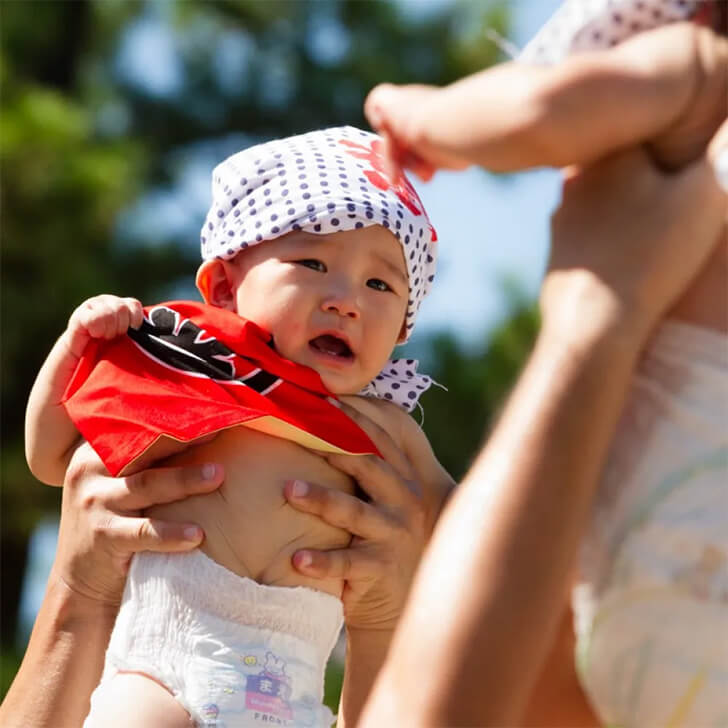
Newborns cry for no reason all the time, so why don't people make the crying useful? Only in Japan do you find the Naki Sumo Baby Crying Festival, where infants compete to cry. Moms and dads hand over their children to the Naki Sumo wrestlers, hoping to see them burst into loud cries.
This contest is bizarre, but the Japanese do it for their own reasons. For centuries, they believed there were evil spirits that could only be driven off by a crying child. The wrestler puts on the masks that scare the tots, forcing them to cry, and their folks get rewarded.
Is Blue the New Green?

As evident in this article, most of Japan's culture and traditions don't follow the world order. The country's linguist opposed the international traffic laws that hold green as "go." Their government obliged and signed off using the nearest green color, which is a bluish shade.
So when driving in Japan, be careful because green means blue. The colors you'll see are green, teal, turquoise, and aqua light. There are separate terms for green and blue now, but the old Japanese had the word "ao" to describe both colors. Nowadays, modern culture refers to green as "Midori."
Sorry, the Train Got Delayed
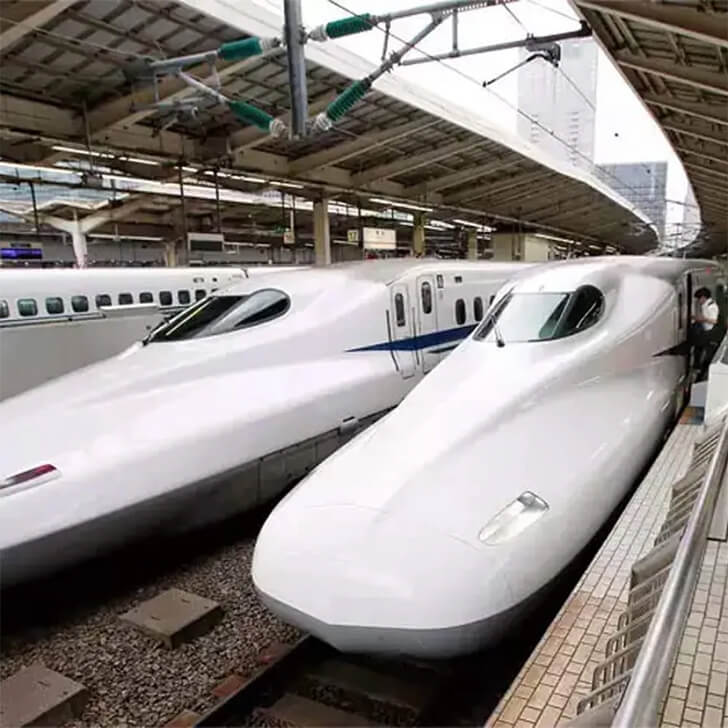
In Japan, time management is a top-notch affair. The country's train schedule is so incredibly tied to punctuality that non-local commuters will be shocked. In 2017, a Japanese commuter railway company had to issue an apology for sending a train early. In fact, the 20-second early train departure led to a "deeply sorry" message for causing "severe inconvenience" to commuters.
Most commuters who have lost their precious time waiting for their transport's arrival will find this move totally unconventional. In Japan, if a train is even five minutes late, the company may be forced to issue an official certificate and make the news headlines.
Take Your Time, This Ice Cream Doesn’t Melt

Where are all the food invention award-giving bodies? Japan needs one for its innovators who came up with the ice cream that doesn't melt. In a bid to help farmers in 2011 after a tsunami, an experiment was conducted on strawberries. That's when a chemical that solidifies cream in no time was accidentally discovered.
Further tests proved that the ice cream could stand its ground before an air dryer for five seconds. As if that isn't enough, the best part is that your taste buds can't tell the difference between no-melt ice cream and the normal one.
Bye for Now! Come Back Again!

Human relationships are highly valued in Japanese culture and tradition. It's no wonder people can get a proper farewell from a total stranger. The 'Land of the Rising Sun' uniquely does things to support its two primary features: courtesy and respect.
From this picture, two ground airport crew are waving and bowing to departing passenger jets. This is just part of an elaborate farewell process that began on the ground with the hosts and total strangers. This gesture may not rank among the biggest farewell gestures, but it still holds a considerate part of what the Japanese hold dear to their hearts.
Keep Warm with a Pocket Heater
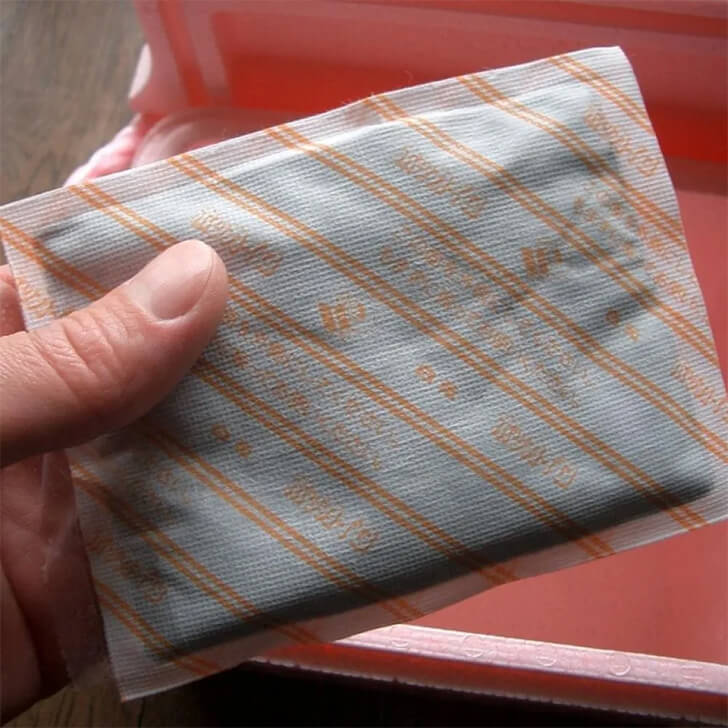
Most chilly nations will be envious of the one-time pocket heater used by the Japanese. 'Kairo,' as it is known, is a chemical warmer carried around to keep one warm during chilly days. Once done with it, you can quickly dispose of it according to instructions.
The item has gone through innovation and improvement over time. It used to be unsealed and shaken to activate the chemical reaction that gave heat. The newer versions require opening and can be used without any shaking. One-time pocket heaters are adaptable enough to be held in the hands, placed in pockets, or attached to the inside of garments using their sticky part.
Cuddles for All

'Soineya' is a Japanese term for cuddle clubs and has the literal translation of 'sleep together shop.' Cuddle cafés allow male customers to lie next to female service providers for a fee. Don't come to these places with weird ideas, though. There's no funny business here, just resting next to a lovely lady.
Various packages of 'Soineya' start from 20-minute naps to 10 hours and even the entire night. The prices vary with the option you have picked, with the lowest cost being around $40 while the longest session is at about $400. It depends on you if you see this as either creepy or cute.
More About Vending Machines
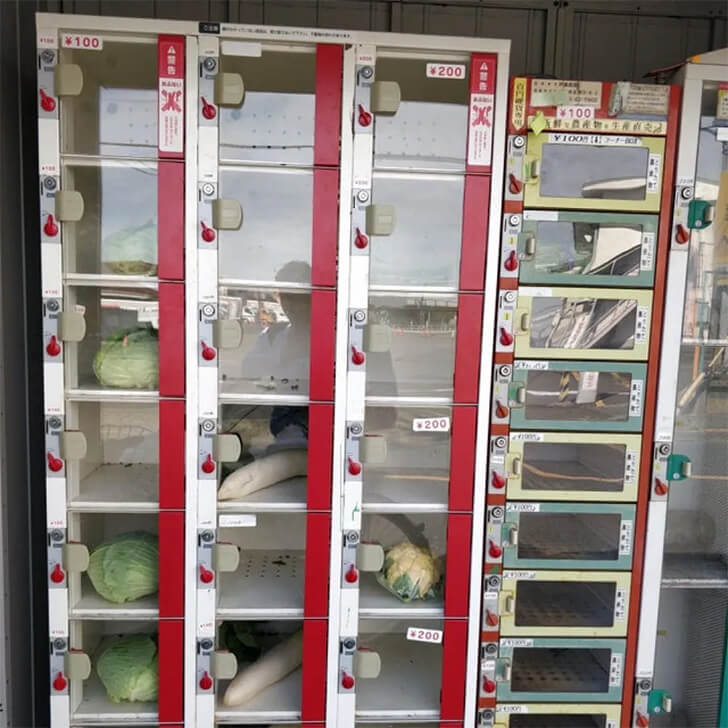
Talk about a country with an inclination towards vending machines, and you have Japan. Locals just can't get enough of these machines. You already know that you can get beverages and snacks from them. But here, they'll dispense anything from fish to vegetables.
Don't worry if you have limited time to go to the grocery store; just find yourself one of the vending or dispensing machines, and you are sorted. You can dispense ice cream, toys, Buddhist amulets, umbrellas, clothing, cigarettes, and many more. What more could be so convenient and easy?
Which Street Are You In?
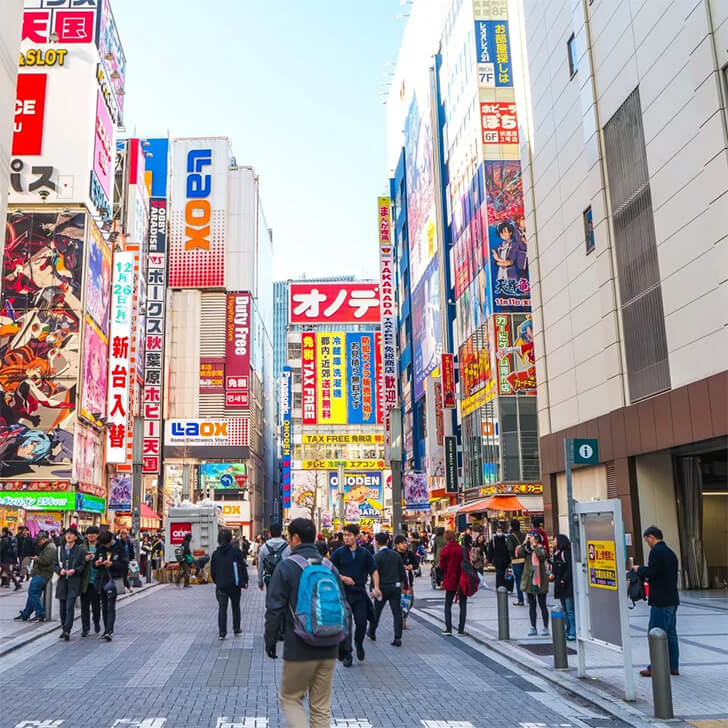
Most Japanese streets are not named, except some in Kyoto and Hokkaido cities. In fact, you'll find yourself wandering along so many nameless streets if you don't know where you are coming from or headed. The country's postal address system is just so peculiar and complex.
The street identifications start with a state, like a prefecture, followed by the city or municipality, the district, the land number for rural addresses, or the block for urban centers. Some houses get their numbers from the date of their construction; others from the space between the street names.
Prim and Proper Taxis
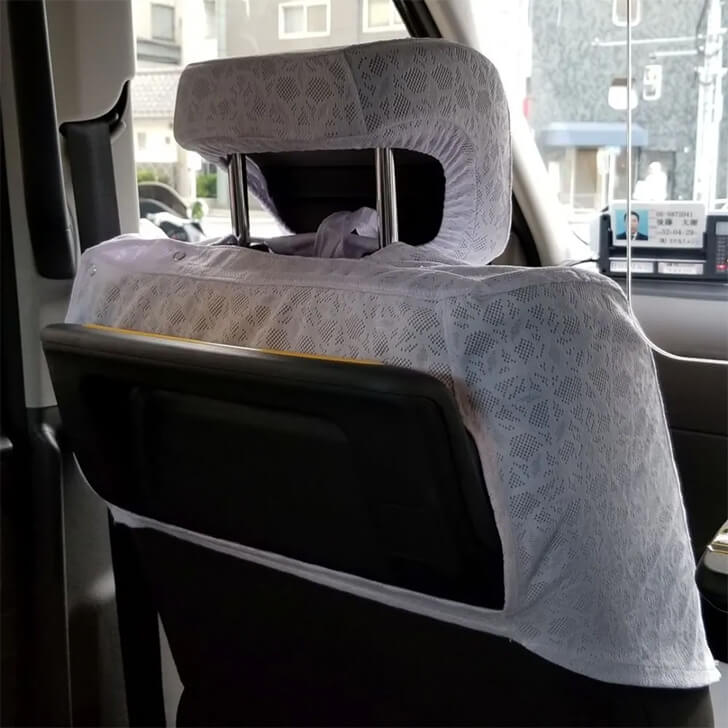
Can you recall the times when couches had knitted covers over them? Well, those times are still in Japan, but in taxis instead of sofas. Yeah, just as you've heard it! Taxis in Japan have their seats covered with white linen to make them look super prim and proper.
This move gives the feeling of being inside an expensive Uber. It's not easy to tell why it's necessary to cover the seats, but it can't be denied that it gives the car's interior a chic touch. Of course, this adds to Japan's culture of doing things their way, and it is downright amazing.
Bunny Resort

Have you ever thought of animals having their own resort? Maybe not, but in Japan, there is an island inhabited by bunnies. Yes, you heard that right. Okunoshima is the name given to Rabbit Island or Usaga Jima, and we suggest you sign up to visit this island of cute little wild animals.
In the East Sea of Japan lies this island that's home to many species of wild bunnies roaming the forests and paths alike. They are cheeky, though, appearing in viral videos and running after visitors to mark their territory. Don't worry; they are friendly. One may jump on your lap and sit there, so be ready.
Let’s Go for a Good Treasure Hunt

Do you want to enjoy your shopping experience? Why do the same old thing over at the grocery store when you can add a little spice to it? Most people may become irritated when the location of goods in stores is changed. Not in Japan. They enjoy seasonal changes to the isle arrangements to make shopping fun.
Shoppers are given floor maps attached to the carts to help them effortlessly find their way around the store. We believe this is a unique way of engaging your customers in more ways than one. The shopping experience turns into a treasure hunting session.
Care for Netflix and Kotatsu?
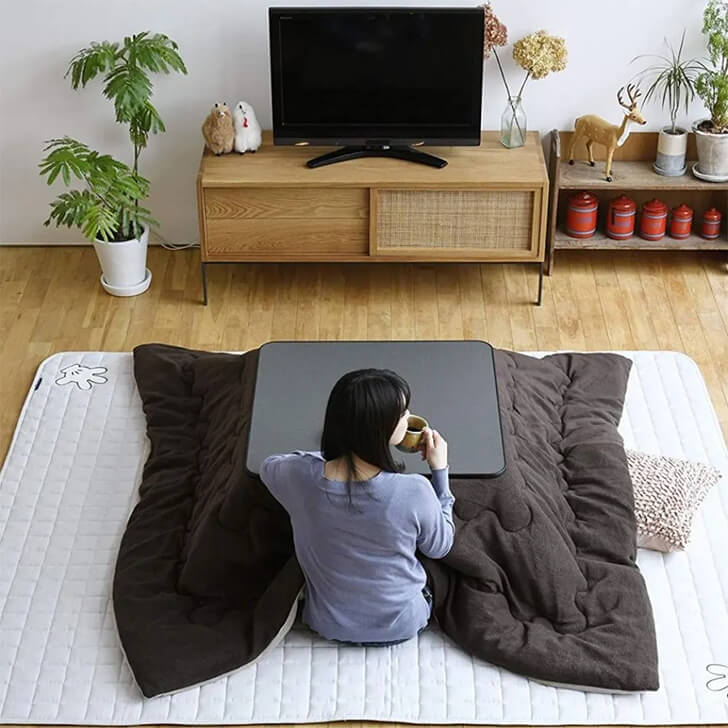
During winters in Japan, you don't just sit around watching and enjoying Netflix. Instead, the cold season calls for a 'kotatsu.' It's a home heater with a table placed on the floor and a blanket wrapped around its surface. It covers your legs to conceal the heater beneath them.
This is a common sight whenever you go to the movies and anime in Japan. Fortunately, many people around the globe know about the handy tool. A Japanese family passes their time during the winter by sitting sprawled across the floor beneath the 'kotatsu.' They enjoy watching TV and mandarins while doing that.
The World's Poshest Toilets
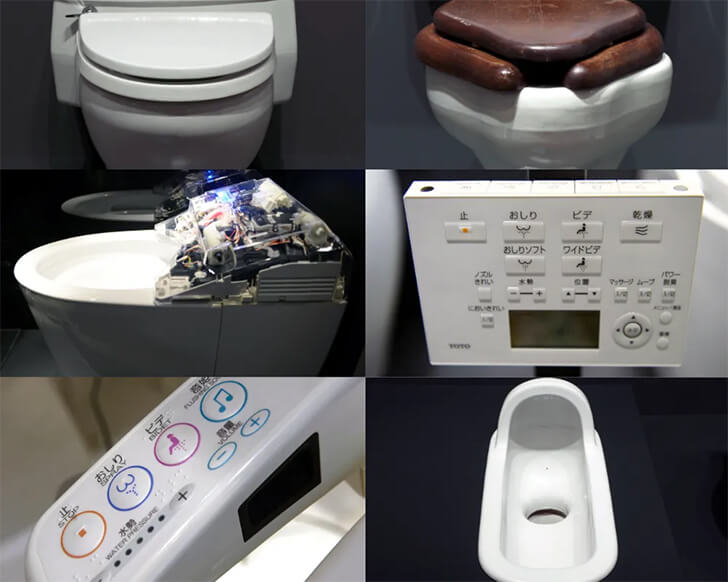
It seems like comfort means everything to Japanese people, and one prime example is the structure of their toilets. Just imagine visiting the bathroom to feel as if you're on vacation. That's the best feeling ever. The invention of quality lavatory has been the goal for Japan.
Believe it or not, it's a place where you can find smart toilets with sound-canceling options. Other intriguing aspects include a beautifully designed perfume dispenser, a seat warmer, a built-in bidet, and an automatic seat raiser. Evidently, Japan may be a definite winner in technological advancement.
The Kawaii "Radiant" Nation

In the 'Land of the Rising Sun,' all things cute are part of the country's culture. 'Kawaii' is a phrase meaning 'a radiant face.' Over time, the phrase took on the most common definition we know today. To put it into the context of Japanese culture, 'kawaii' means cute.
Japanese people truly appreciate cuteness, so they endow otherwise mundane things with personality. Look at Hello Kitty, Harajuku, and Nintendo to see exactly that. Everything from pop culture ads and icons to adorable mascots has an element of 'kawaii' in them.

Have you been to Japan? If not, put it on your bucket list to one day visit the country because it is one that's rich in culture. Many things have unfolded in this nation, with some looking familiar to other lands, while others are unique only to Japan.
In this piece, we dive into what one can only experience in 'The Land of the Rising Sun.' We have included art, security, culture, and many more, including how people live their lives. With every paragraph you read, you're sure to learn something new, unusual, and sometimes weird compared to what you're familiar with from where you are in the world.
